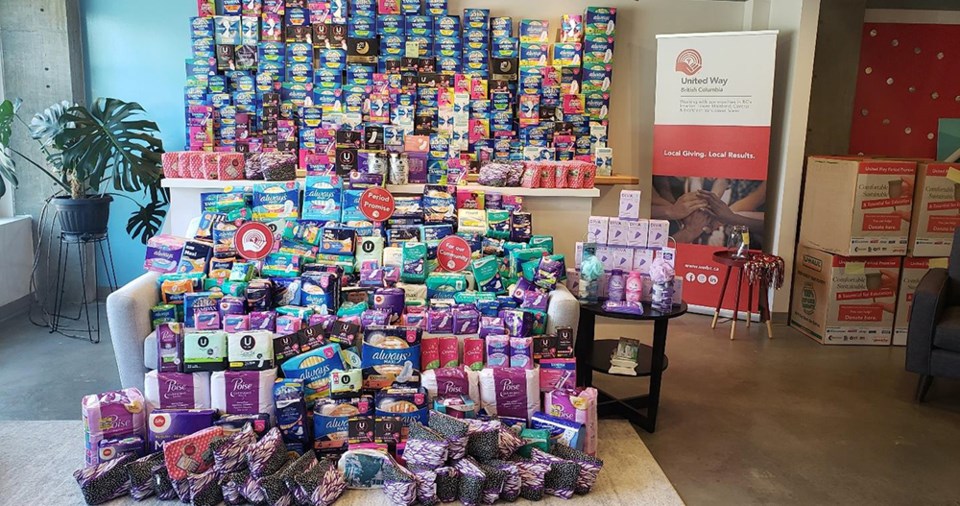United Way British Columbia wants to make it easier for people who menstruate to get through their periods with dignity.
The 2024 Period Promise campaign, presented by Pacific Blue Cross in partnership with CUPE Local 1816, gives everyone an opportunity to help tackle period poverty during the month of May.
Access to period products has become more challenging for everyone, especially students, workers and single parents, due to rising costs from inflation, according to a United Way media release. Many people struggle to afford both period products and food, and menstrual stigma makes it difficult for people to ask for help.
"The United Way Period Promise campaign empowers everyone to contribute to the solution,” stated Rob Chiarello, SVP, people and culture at Pacific Blue Cross. “We recognize that access to menstrual products improves health, restores dignity and fosters community engagement. The impact of period poverty on British Columbians motivated our support for this initiative from its inception.
"Seven years on, we continue to proudly endorse this effort addressing a critical health issue for many in BC. Our support echoes our commitment to building healthy communities and improving health and well-being for all British Columbians."
According to a recent report by UNICEF, 44 per cent of Canadian single parents eat less so their children can eat. They are already faced with tough choices and if the household has one or more people who menstruate, expenses to cover their basic needs increase substantially, the release stated.
"Period poverty is widespread across our country, compounded by rising inflation costs, but we have an opportunity to change the landscape here in BC,” stated Beth Miller, President, CUPE 1816. “The United Way Period Promise campaign not only raises awareness about this issue but also contributes to menstrual equity by providing free products for those in need. Every contribution, regardless of size, directly helps someone who may otherwise lack access. Together, we’re bridging gaps and ensuring no one has to be without the products they need."
The cost of personal care supplies such as tampons and pads has increased by 6.3 per cent, according to the Consumer Price Index released by BC Stats in March. United Way’s research as part of the Period Promise Final Report revealed that: more than half of people who menstruate in BC have struggled to buy products for themselves; a third of people say they haven’t known where to buy menstrual products they could afford; and the cost of menstrual products is so prohibitive many people opt to stay home without products when they have their period so they can buy more food for themselves or their families instead.
Lack of access to period products means a higher rate of people will miss school, work, community or social events, according to the United Way.
“This translates to missed opportunities to learn, earn an income, contribute to their community, or enjoy a healthy social life for no reason other than an uncontrollable function of their body," stated United Way BC. “Indigenous peoples and people living with disabilities experience these negative impacts more than other groups.”
Together with British Columbians, United Way BC will improve access, and ultimately quality of life, for people who menstruate that face tough choices due to rising costs, the release stated. The 2024 campaign aims to collect up to 500,000 menstrual products through financial and product donations. People can help by donating online at uwbc.ca/periodpromise.
Join the Peak's email list for the top headlines right in your inbox Monday to Friday.




